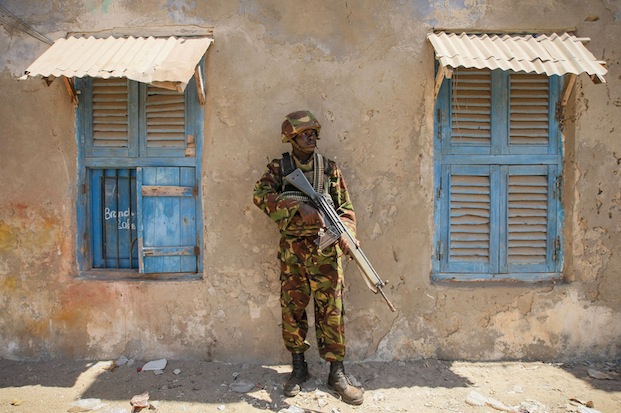Wizards inland from the little Somali port of Barawe bewitched a person to come to them by banging a nail into a tree and chanting his name. ‘He comes no matter how far away he may be,’ wrote Gerald Hanley in Warriors, his unrivalled classic about Somalia — for him a place of ‘swirling sandstorms, heat and billions and billions of flies’. But I need no nail in a tree to return to Barawe, which to me is a paradise I once aimed to make my home.
I first saw Barawe from the high, red dunes of the hinterland. It glittered white against the azure Indian Ocean: beautiful houses and mosques, a colonial Italian lighthouse ringed by a necklace of surf. It was 1998 and I had never seen anywhere so exotic, populated by very light-skinned descendants of Portuguese, Arabs and Shirazis. They spoke a northern form of Swahili called Chimbalazi and were full of poetry. The perfume of incense and halwa sweetmeats drifted through sandy streets. I swam off a white sand beach and found Amharic inscriptions in the ruins of an old fort. I was made a guest at a four-storey mansion where a banquet of delicacies was prepared in the courtyard below and then hoisted up by a coconut rope on huge copper trays.
Barawe, in those days an island of beauty and sophistication amid the horrors of Somalia, was birthplace of the eponymous Sufi Sheikh Uways al-Barawi. This great religious leader promoted a tolerant form of Islam that so many Somalis still worship by today. Al-Barawi was murdered on the orders of the Mad Mullah, Muhammad Abdullah Hassan, a fanatic who fought Britain for 22 years and left nothing good except poetry extolling ultra-violence. That tension, between extremism and decency, has been played out again in Barawe’s recent history.









Comments
Join the debate for just £1 a month
Be part of the conversation with other Spectator readers by getting your first three months for £3.
UNLOCK ACCESS Just £1 a monthAlready a subscriber? Log in